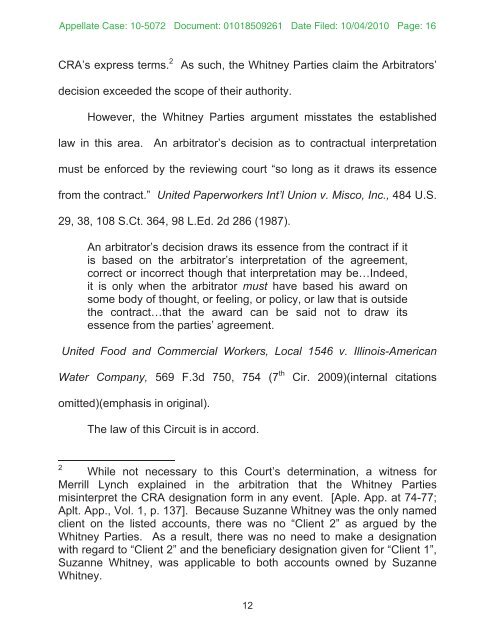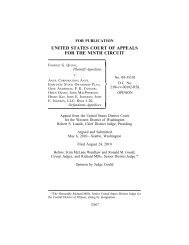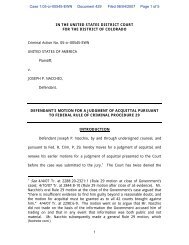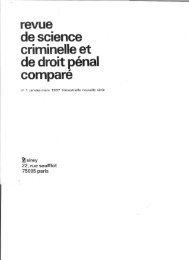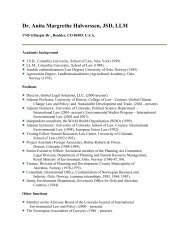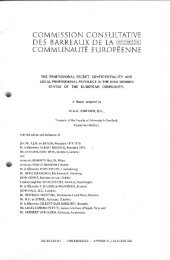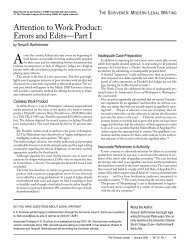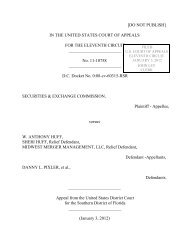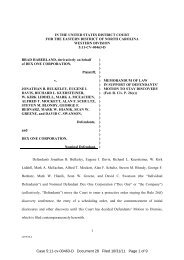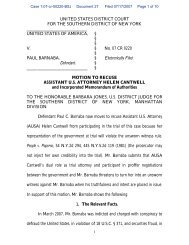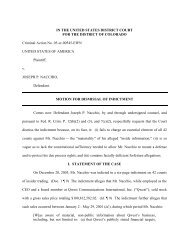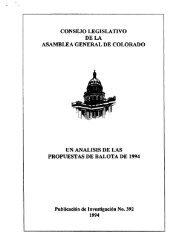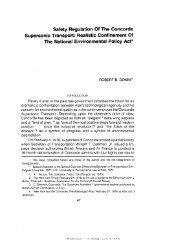Response to Appellants' Defendants' Opening Brief
Response to Appellants' Defendants' Opening Brief
Response to Appellants' Defendants' Opening Brief
Create successful ePaper yourself
Turn your PDF publications into a flip-book with our unique Google optimized e-Paper software.
Appellate Case: 10-5072 Document: 01018509261 Date Filed: 10/04/2010 Page: 16<br />
CRA’s express terms. 2<br />
As such, the Whitney Parties claim the Arbitra<strong>to</strong>rs’<br />
decision exceeded the scope of their authority.<br />
However, the Whitney Parties argument misstates the established<br />
law in this area. An arbitra<strong>to</strong>r’s decision as <strong>to</strong> contractual interpretation<br />
must be enforced by the reviewing court “so long as it draws its essence<br />
from the contract.” United Paperworkers Int’l Union v. Misco, Inc., 484 U.S.<br />
29, 38, 108 S.Ct. 364, 98 L.Ed. 2d 286 (1987).<br />
An arbitra<strong>to</strong>r’s decision draws its essence from the contract if it<br />
is based on the arbitra<strong>to</strong>r’s interpretation of the agreement,<br />
correct or incorrect though that interpretation may be…Indeed,<br />
it is only when the arbitra<strong>to</strong>r must have based his award on<br />
some body of thought, or feeling, or policy, or law that is outside<br />
the contract…that the award can be said not <strong>to</strong> draw its<br />
essence from the parties’ agreement.<br />
United Food and Commercial Workers, Local 1546 v. Illinois-American<br />
Water Company, 569 F.3d 750, 754 (7 th<br />
Cir. 2009)(internal citations<br />
omitted)(emphasis in original).<br />
The law of this Circuit is in accord.<br />
2<br />
While not necessary <strong>to</strong> this Court’s determination, a witness for<br />
Merrill Lynch explained in the arbitration that the Whitney Parties<br />
misinterpret the CRA designation form in any event. [Aple. App. at 74-77;<br />
Aplt. App., Vol. 1, p. 137]. Because Suzanne Whitney was the only named<br />
client on the listed accounts, there was no “Client 2” as argued by the<br />
Whitney Parties. As a result, there was no need <strong>to</strong> make a designation<br />
with regard <strong>to</strong> “Client 2” and the beneficiary designation given for “Client 1”,<br />
Suzanne Whitney, was applicable <strong>to</strong> both accounts owned by Suzanne<br />
Whitney.<br />
12


